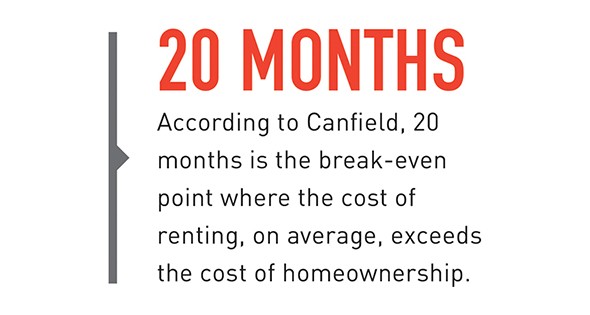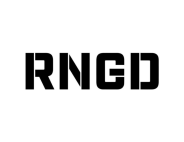
A Fresh Look at Buying Versus Renting
26 Apr, 2017
With rental rates rising dramatically in many U.S. markets, the relocation industry and its transferees should take a fresh look at the rent-versus-buy equation.
Consider this: Nationwide, the average U.S. rent spiked 20 percent from 2010 through Q2 2016, according to research firm Reis. During that time, the average inflation rate was just 1.43 percent. Rental prices are also outpacing wage growth.
No doubt, those relocating have to weigh the pros and cons of putting down roots through a home purchase versus making a short-term rental commitment, but today’s market factors make a compelling argument to purchase. Even people who once felt forced out of the housing market are taking a fresh look at home ownership.
Crunching the Numbers
In working with transferees as they mull over their purchase or rental options in their new location, it’s helpful to put context around the basic financials. For instance, people spend a higher percentage of their income on rent than on mortgage payments and property taxes. In all 100 of the top metro markets, buying is currently 35 percent cheaper than renting.
If the company offers home purchase benefits to help with mortgage assistance, the financial equation gets even more enticing to purchase. Add in low interest rates, the predictability of a fixed mortgage, and possible tax deductions and home ownership could be the right short- and long-term choice. If mortgage rates drop again, homeowners can also refinance. They can further build substantial equity, which can contribute to financial stability and a more comfortable retirement.
Those considering staying in their new city longer term should keep in mind that the “break even” time in many markets has gotten shorter due to those rising rental rates. The break even point is based on how much the home’s purchase price will need to appreciate on an annual basis relative to renting in order to cover the costs of owning the home.
Those costs include the down payment, closing costs, property taxes and maintenance, among others. Once the break even threshold is reached, buying becomes more advantageous than renting. Nationwide, data shows that buyers break even in just a year and eight months, outdoing renters by gaining equity from their mortgage payments. So, even people planning to spend just a few years in that market may benefit from purchasing a home rather than choosing a rental.
Mortgage-Ready
In the 10 hottest real estate markets, homes come on and off in a matter of days or weeks. The median age of inventory in three San Francisco-area markets ranges from 33-51 days. The inventory in most of the top 10 markets moved more quickly in August of 2016 than just a month earlier.
With this fast-paced market, buyers need to be ready to make an offer and get a mortgage quickly. If the relocation has come up suddenly, borrowers may not have had time to save enough for a traditional 20 percent down payment. They may also have a special requirement, such as the need for a multi-million dollar mortgage.
The New Reality of Buy v. Rent
The percentage of Americans who own their homes is at a record low. At the same time, rental costs are high and getting higher, often outstripping the rise in home prices. In today’s market, home ownership may offer benefits that can’t be matched by renting, from lower costs to stability and equity. With the changes underway in today’s markets, it’s time to revisit the rent versus buy equation.
Related Posts
-

IONNA, LLC, to Invest $10M in Global Headquarters in Durham, North Carolina, Creating 203 Jobs
-

Construction, Manufacturing and Fabrication Innovator RNGD Invests $25 Million to Expand Southeast Louisiana Operations, Create 130 Direct New Jobs
-

Novo Nordisk to Expand Johnston County, NC Operations with $4.1B Investment, Creating 1,000 New Jobs
-

Gov Kemp: Food Solutions Company Cargill to Create 400 New Jobs in Metro Atlanta Office Hub
-

RoyOMartin Announces $30 Million Modernization of Timber Manufacturing Facility in Southwest Louisiana
-

Four Business Expansions Bring 144 Jobs to Kent, Bay Counties
-

Sodexo Opens Its New North American Headquarters
-

FUJIFILM Diosynth Invests $1.2B in Holly Springs, North Carolina, Manufacturing Facility, Creating 680 New Jobs
-

Eastman’s second U.S. molecular recycling facility will be in Longview, Texas
-

Wisk and the City of Sugar Land, Texas, Partner to Bring Autonomous Air Taxis to the Greater Houston Region









